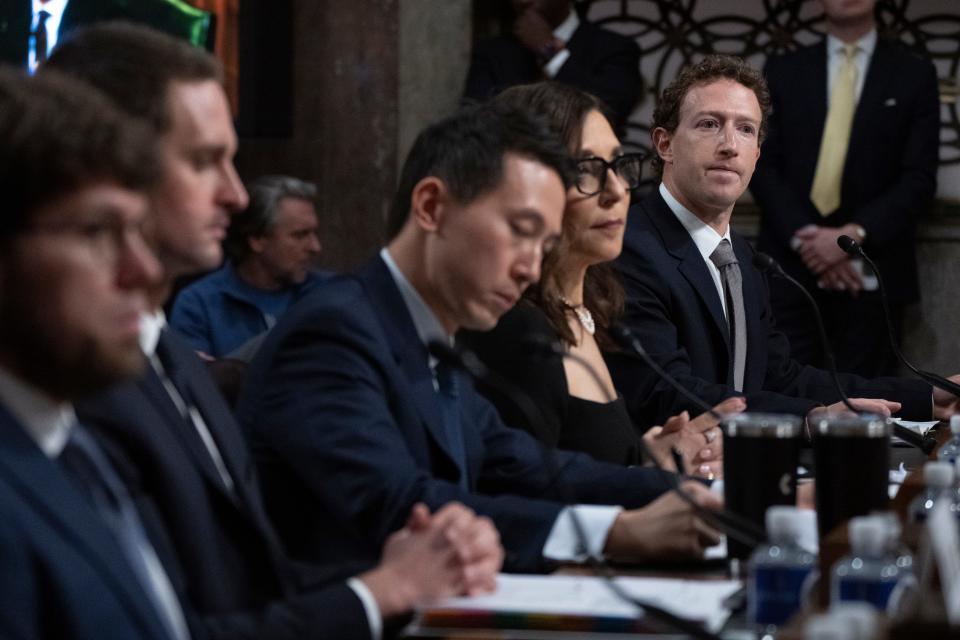After DeSantis veto, Florida Legislature OKs modified social media restrictions for minors
The Florida House has again passed sweeping social media restrictions for minors, teeing them up for Gov. Ron DeSantis' consideration. This time, the governor is expected to OK them.
DeSantis vetoed the original bill (HB 1) last Friday, which would have banned “addictive” social media platforms for minors younger than 16 years old. But that was after he and House Speaker Paul Renner had already negotiated on a new version (HB 3).
That new bill passed with a bipartisan 30-5 vote in the Senate on Monday. It also got bipartisan support in the House Wednesday, passing 109-4. It keeps the minor ban, at least for those younger than 14, with an exception for 14- and 15-year-olds who get a parent's permission.
Social media companies have made BILLIONS by trapping kids and replacing parents. States around the country are fighting to deliver a solution that balances parental and constitutional rights and, most importantly, keeps our children safe. We believe we struck that balance.
— Paul Renner (@Paul_Renner) March 6, 2024
It also keeps an age verification requirement for accessing pornographic websites.
"This is a bill that lets kids be kids," said Rep. Toby Overdorf, R-Palm City, a bill sponsor.
But those who voted against — the "no" votes in both chambers all came from Democrats — had concerns over the legislation's constitutionality and accused it of being government overreach, despite the changes.
"In this country and this state, we believe in personal freedoms, and I do think that taking away a parent's opportunity to make those decisions is something the Legislature should not be getting involved with," said Rep. Anna Eskamani, D-Orlando. "I don’t think we should spend more public dollars on lawsuits in this state where we know these bills are inherently unconstitutional."
Those changes are concessions to DeSantis, who also had parental rights and legal concerns. Similar measures, which have parental rights exceptions, have stalled in other states.
The parent permission exception is a big one, considering how Renner, despite the governor’s concerns, previously said such an exception was "impractical" and that the “irreparable harm” caused by social media was too great to ignore.
Yet bill proponents in both chambers promote the new legislation as one more likely to get broad public approval and survive expected legal challenges, while still addressing their concerns about the mental health effects of social media and sexual exploitation of children.
"At least we are acting, at least we are moving the needle, at least we are having the conversation,” said Rep. Michele Rayner, D-St. Petersburg, a bill sponsor. "I am tired of seeing stories about children who are dying because of what is happening on social media."
The bill's main sponsor – Tyler Sirois, R-Merritt Island – choked up several times in his closing argument for the bill, reciting a list of horror stories about kids and social media.
"If this is the new 'town square,' God help us," he told colleagues.
The new legislation bulks up the civil penalties against social media companies that run afoul of the restrictions. It also gets rid of the original's age verification requirements for social media, which had created legal and data privacy concerns.
Bill proponents say that age verification isn't necessary, since the potential penalties will "incentivize" companies to find a way to keep minors off.
Some LGBTQ groups worried about bill: LGBTQ advocates say Florida social media minor ban would block life-saving resources
You won't know who's funding ads: Who's actually paying for the ads against the Florida social media bill? You won't know
First Amendment questions
Despite all the lawmakers' tweaks in preparation for legal challenges, many of the groups opposed to the vetoed bill are also against this one. NetChoice, a tech industry trade group that has filed lawsuits in other states against similar measures, says the resulting language still has constitutional issues.
“Like a zombie coming back from the dead, this bad idea has been reborn in HB 3 which is now moving through the Florida legislature, and I'm hoping lawmakers know how bad this is,” Carl Szabo, its vice president and general counsel, told WBBH-TV.
Renner, who has predicted NetChoice and "Big Tech cronies" would file a lawsuit immediately after the bill becomes law, bashed Szabo’s wording.
“Saying HB 3 is 'like a zombie coming back from the dead' is a poor choice of words considering how many kids have lost their lives to social media,” he wrote in a Wednesday post on X, formerly known as Twitter. Florida’s kids do not belong to @NetChoice and their Big Tech cronies. Bring it!”

But free speech organizations have also come out against the new bill. The Foundation for Individual Rights and Expression, a national free speech organization, called the legislation "fatally flawed" in a statement and said it would violate the First Amendment.
Eight more groups released a letter Monday saying the same thing. “We know social media sites can present significant risks to minors, but the state’s response to such risks should be tailored to minimize harm, not passing measures that violate Floridians’ constitutional rights,” said Katie Blankenship, director of PEN America Florida.
Other groups signing off on the letter include NetChoice, the First Amendment Foundation, the American Civil Liberties Union of Florida as well as several LGBTQ rights organizations.
The 2024 legislative session is slated to end Friday, when lawmakers are expected to pass the one bill they are constitutionally required to OK every year: The $100-billion-plus state budget for the next fiscal year starting July 1.
This reporting content is supported by a partnership with Freedom Forum and Journalism Funding Partners. USA Today Network-Florida First Amendment reporter Douglas Soule can be reached at [email protected].
This article originally appeared on Tallahassee Democrat: Florida lawmakers approve modified social media restrictions for kids
